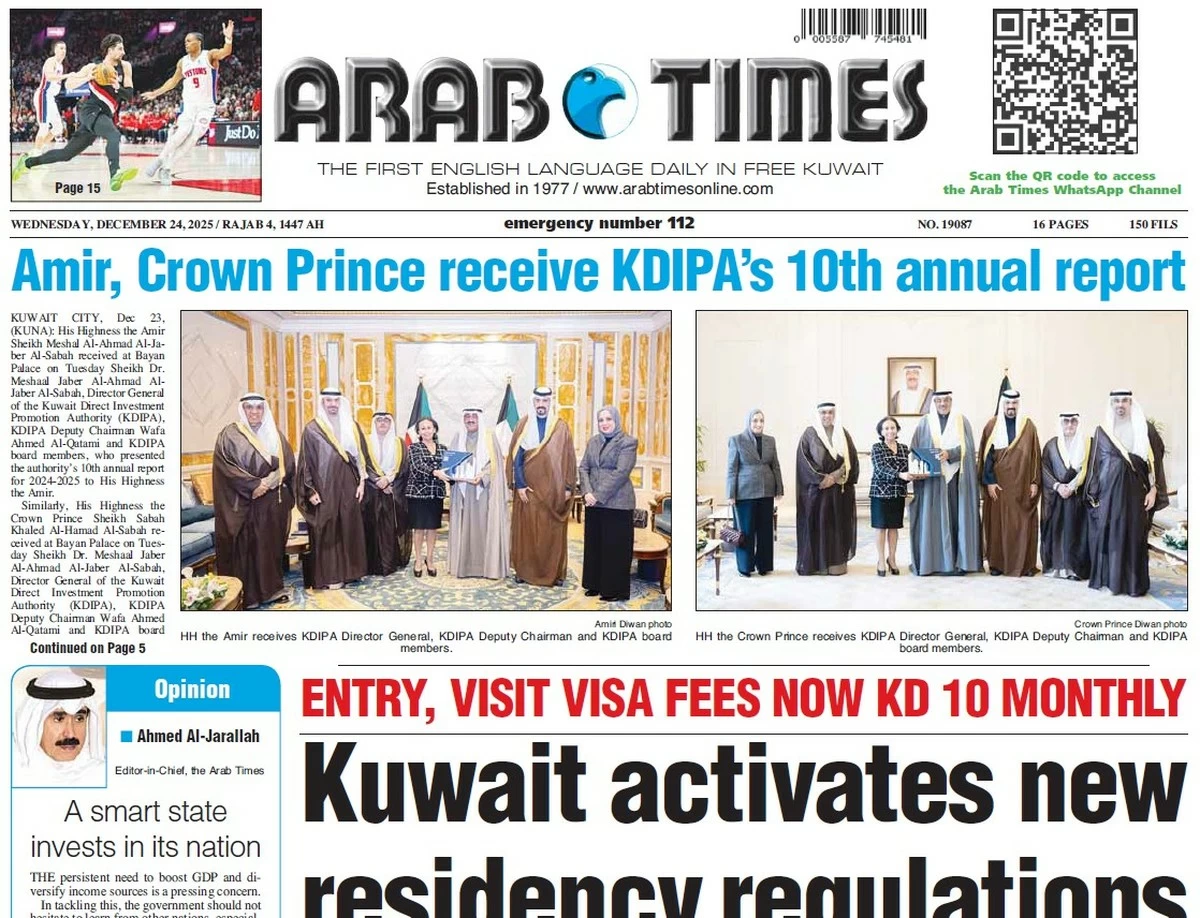07/07/2024
07/07/2024
KUWAIT CITY, July 7: Technology experts have warned about fake trading companies that deceive people into trading in financial portfolios; pointing out these fraudulent companies have increased in recent years and some of them operate in Kuwait. They were surprised that local bank fraud cases are on the rise. An official entity have announced that the number of such cases has reached 128,000 -- 8,082 in 2020; 65,492 in 2021 and 54,066 in 2022.
Cybersecurity expert, President of the Kuwaiti Society for Information Security and Computer Professor at Kuwait University Dr. Safaa Zaman confirmed the increase in the number of fictitious trading companies in the country, which use various methods to deceive victims by making them believe that they specialize in trading and have real estate, commercial and other activities. She cited the case of a citizen who was recently deceived by a fake trading company that took KD300,000 from the victim. She was surprised by the fact that fake trading companies have their headquarters in well-known complexes in the country. She said these companies use the names of trading companies or financial brokerage and investment companies by changing one of the letters so that the victim thinks he is dealing with a reputable company.
She pointed out that in the past, fake trading companies exploit people who are fluent in the Kuwaiti dialect even if they are not Kuwaitis in order to convince the Kuwaiti victim; indicating that the caller from the fake company also speaks to the client in his dialect. The caller speaks quickly and persists in convincing the victim, tempting the latter to gain trading profits exceeding 100 percent, so the supposed client falls victim to the trap, she explained. She added fake companies exploit social media celebrities to promote them, as it happened in the country some time ago. She warned that official trading companies do not contact clients in such manner. If they contact clients, they give the clients enough time to verify the company’s licenses and official and legal status, she asserted.
Warned
A cybersecurity expert has issued a stark warning about the growing threat of applications that hack into bank accounts, particularly those that request users' email and password information. She cautioned that some of these apps are operated by criminal organizations that exploit these details to gain unauthorized access to bank accounts.
In a recent statement, the expert expressed concern over two of Kuwait's largest banks, which have reportedly utilized such applications to facilitate international money transfers. She highlighted that fraudulent entities often impersonate legitimate banks by using their logos and emails, tricking victims into transferring money under false pretenses.
She questioned whether these banks had implemented adequate precautions to protect their customers from electronic fraud or if they had inadvertently exposed them to cybercriminals. Emphasizing the importance of vigilance, she urged the public to avoid clicking on links received through social media.
The expert called for an urgent update to the Central Bank’s regulations, pointing out that cybercriminals are increasingly using advanced technologies, including artificial intelligence, to carry out fraudulent activities. She criticized the current awareness campaigns conducted by banks, deeming them insufficient given the rising incidents of account theft.
She also advocated for Kuwait to enter into agreements with other Gulf countries to enhance customer protection against electronic theft. As an example, she cited the Central Bank of Saudi Arabia, which has implemented measures to curb the theft of customer accounts.
The expert’s warnings underscore the critical need for robust cybersecurity measures and greater public awareness to combat the sophisticated tactics used by cybercriminals.
Meanwhile, Computer Science Professor at the Public Authority for Applied Education and Training (PAAET) Dr. Bader Al-Khudary stated that fake trading companies target the elderly who are tempted by quick profits. Since majority of the elderly are not proficient in using technology, they fall prey to the fraud mafia from fake trading companies or those stealing from bank accounts. He expressed astonishment over the 128,000 fraudulent transactions in 2020, 2021 and 2022; wondering what the regulatory authorities did as a result of this large number of fraudulent operations. He underscored the need to intensify awareness campaigns, not only through social media, but also through street advertisements; urging all State agencies to come together to intensify awareness campaigns. He added anyone who wants to invest his money must do so through the banks as they are the best ones to do this task. He advised the public to refrain from using any application or link without verifying the source. He said telecommunications companies must regulate the sale of mobile phone lines, while setting many conditions to protect people from the electronic fraud mafia that buy mobile phone lines and use them for bank account robberies.
Fraud
Financial and technological expert Khaled Al-Kandari pointed out that electronic fraud is on the rise in the Gulf region in general; but they are focusing on Kuwait due to the ease of infiltration here. It is worth mentioning that when fake trading companies contact a person, they convince him of a systematic fraud, as the caller claims that he is from a company trading in gold, real estate and currencies. Initially, he asks the victim to open an account with an amount ranging from KD50 to KD90. After opening the account with them, another official from the same fraudulent company calls the victim and asks him to increase the value of his trading by huge amounts. Once the victim transfers the amount to that trading company, his bank account is robbed of everything in it. Al-Kandari revealed there are some ways to detect fraudulent trading companies by using search engines. He said there is a database for many of these companies. If the name of company is not listed among the international fraudulent companies, the licenses and trading records must be verified as well, he suggested.
By Najeh Bilal Al-Seyassah/Arab Times Staff


